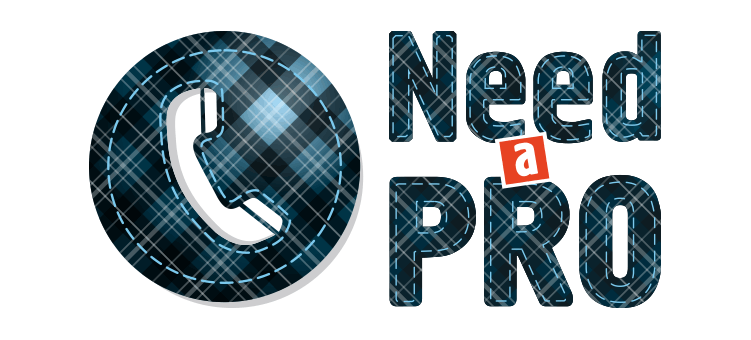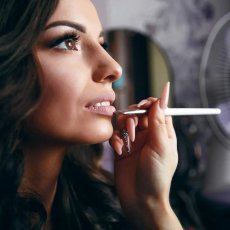Contraindications for Massage Therapy
Contraindications are certain conditions that a person may have that could be aggravated by the application of Massage Therapy.
Although certain conditions may be absolute contraindications, there may be cases where massage can be applied, provided a doctor’s approval has been attained and the massage treatment has been adjusted.
Often Cautions are included under contraindications. In these cases, the type of massage may need to be adjusted, certain parts may best be avoided or special client care may be attended to. Quite often in these cases specific massage techniques may assist the client with the condition. A Doctor’s approval is not necessarily required for conditions listed as ‘cautions’.
Abnormal body temperature
A normal body temperature is 37 Degrees Celsius (+ or – 0.6)
If a client has a fever, massage could increase it. A fever may be caused by vaccinations or early signs of the flu
Acute Inflammatory Conditions (rheumatoid arthritis, bursitis, tendonitis)
The signs of inflammation are redness, heat, pain, swelling and reduced function. The area that is inflamed will only be made worse with massage because more blood will travel to the area.
- Rheumatoid Arthritis: If joints are actively inflamed they need to be avoided. However if the condition is chronic, massage can be of assistance
- Tendonitis: Avoid in the acute stages
- Bursitis: Avoid totally
- Injuries (sprains, strains, broken bones): At least 48 hours after injury
- Bacterial Infections: Can often present with pustules-needs to be avoided as can lead to systemic infection
Acute Infectious Conditions
Massage will only intensify the illness. Examples include Hepatitis A, food poisoning, influenza, immunisation. With Hepatitis the increased circulation could place added stress on the liver and also leave the client feeling ‘groggy’.
Recent surgery
Massage can be of great benefit to clients post surgery but a physicians approval should be obtained first. Massage can assist with the reduction of scar tissue- Specialised techniques.
Recent Injury
The time to wait after an injury before massage should be administered can vary depending on the type of injury and the severity. The minimum is normally 48 hours. RICE should be administered in the acute stages.
Skin Disorders
The presence of pustules represents conditions that could be spread by massage. The following conditions can be contagious- Warts, boils, acne, impetigo, herpes simplex, tinea, ringworm, scabies.
The following could be aggravated by massage- bites/stings, eczema and psoriasis. If eczema or psoriasis is not infected or looking red then massage may be of assistance and may help the client feel better about this part of the body.
Thrombosis
A thrombosis is a blood clot. It can be lodged in a vein-DVT (deep vein thrombosis). Massage is contraindicated because it may dislodge the clot which could send it through the circulation where it could lodge in the lungs causing a pulmonary embolism-a life threatening condition.
Risk factors include:
Prolonged bed rest
Immobility-especially hip fracture, joint replacement or spinal cord injury
Recent heart attack
Congestive heart failure
Shock
Recently given birth
Recent surgery
Venous catheters
Signs and symptoms are:
Inflammation-pain/swelling
Deep muscle tenderness (unexplained)
Fever and general malaise
Swelling, tenderness or pain along the vein
Common sites are:
Soleus muscle and posterior tibial and peroneal veins
Femoral vein
Ileofemoral veins
Calf veins
Treatment: People with these conditions or are in a high risk group may be put on blood thinning medication such as Warfarin or Heparin. People taking blood thinners should be given a physicians approval before commencing massage treatment because they can be bruised easily which can lead to internal bleeding.
Heart Failure
If a person is suffering from right/left sided or congestive (both) heart failure a Doctor’s approval should be received before commencing massage treatment. Returning blood flow can place extra strain on the heart.
Hypertension
Blood pressure that is being regularly monitored by a doctor and is under control doesn’t need a Doctor’s approval before treatment. Massage can actually assist the hypertensive client keep blood pressure down. If people are on blood pressure medication, it is likely that they will feel dizzy when they get up from the table. The therapist should remain with them and ask them to sit for a couple minutes before getting off the table.
If a clients blood pressure isn’t controlled, speaking to their Doctor or getting an approval is advised.
Varicose Veins
Massaging varicose veins is contraindicated because the pressure applied could damage the already weak structure and cause parts of the vein or a blood clot to be released into the circulation (an emboli) placing the person at risk of pulmonary embolism.
Massage can assist a person with varicose veins by returning blood back to the heart. If a client has varicose veins, the therapist should drain the area above the vein and never massage the vein directly.
Phlebitis
Inflammation of a vein accompanied by pain and swelling. This may be caused by surgery, infection or injury or for no apparent reason. Often in Phlebitis a blood clot forms along the wall of the inflamed veins.
Aneurysm
This is a localized dilation of a blood vessel-usually an artery. It is usually located in the Aorta, thorax, abdomen and sometimes in the cranium. Anyone with an Aneurysm should bring a referral from their Doctor stating that massage is ok.
Haematoma
This is a mass of blood trapped in tissue cavities of the body. Contusions or bruises are common types of haematomas that are generally not too serious. They occur as a result of impact that is severe enough to break a blood vessel. Massage is contraindicated in the acute stages. Once the area has lightened in colour, light massage will enhance healing.
Oedema
Oedema is due to excess amount of fluid in tissue spaces. Pitting Oedema means that if a finger is pressed into it an indentation remains for some time.
Non-pitting Oedema occurs as a result of local infection, trauma or renal disease. There are many causes of Oedema and it is important to know what the cause is before proceeding with massage.
Oedema that will benefit from massage:
Backpressure in the veins due to immobility
Lymphatic blockage (consult with Doctor first)
Oedema that is contraindicated:
Liver or kidney disease
Inflammation from infection or trauma
Toxemia of pregnancy
Heart failure oedema
When massaging oedema it is important to open up other channels first Eg. If the oedema is in the feet, the abdomen, thigh and groin should be massaged first.
Pregnancy
The massage should always be soothing and relaxing.
If there is a history of miscarriage-avoid massage in the first trimester.
Avoid deep abdominal massage during the entire pregnancy and for 3 months after childbirth.
Avoid heavy percussion.
Avoid reflex points for bringing on labour (inner ankle and leg). Avoid massage if the person is toxemic.
Positioning is important in the 2nd and 3rd Trimesters. Supports will need to be used. Don’t use supine position in the latter stages and keep to 15-20 mins due to pressure on abdominal blood vessels.
Side lying position works well as does supported chair position. Allow the client to decide on which position is most suitable.
The hormone relaxin affects all connective tissue so avoid overstretching muscles and overmobilising joints/ligaments or permanent laxity can be developed. Avoid heating blankets and hot packs unless they are requested-Pregnant women are often sensitive to heat.
Cancer
Cancers can spread lymphatically and massage increases circulation of lymph so a medical clearance is required before treatment. Massage may assist in spreading metastasis.
Many Doctors prescribe massage because it relaxes and nourishes the body thereby supporting the immune system. Massage can be very beneficial in palliative care as it helps ease pain.
Asthma
If a client is having a severe uncontrolled asthma attacks, a medical clearance should be obtained. However where the asthma is being managed well it is not necessary to consult a physician. Massage can be of great benefit to an asthmatic. Precautions include the use of fragranced oils which may trigger an attack.
Diabetes
Clients with this condition are prone to atherosclerosis, hypertension and oedema. It is recommended to consult a Doctor for clients with Diabetes. Diabetic people can often lose sensation in the lower legs and feet. The skin becomes atrophied and may appear pale and hairless. They can be easily bruised and may not be able to feel if the pressure is too hard.
These clients will benefit from having the circulation increased to their peripheries but the massage should be gentle. If the client is on insulin, the injection sites should be avoided.
Umbilical Hernias
Avoid deep abdominal massage because the integrity of the tissues is compromised. Do not massage without a physicians approval.
Medication
Anti-coagulants eg. Warfarin and Heparin will increase bruising and there is a risk of internal bleeding. Being on these medications will probably mean they have a condition that is contraindicated.
Muscle relaxants-may cause a decrease in sensation.
Anti-psychotic medicines may leave the person with tics and tremors.
Anti-hypertensives- may leave the person feeling dizzy when getting off the table
Cortisone-may make the client’s skin fragile and easy to bruise
Vitamin A derivatives used for acne treatment may leave skin fragile and easy to bruise
Alcohol and other substances
It is unwise to massage people whose ability to provide feedback and sense pain is impaired. They may have a distorted sense of treatment you are providing. Massage will also increase the effects of the substances they have consumed. It places extra stress on the liver.
Psychosis
Psychological issues should be referred to a professional. Touching may aggravate some conditions and is contraindicated in bipolar psychosis, schizophrenic psychosis, and paranoid conditions. However massage does have an important role to play in post-traumatic stress disorders and some abuse disorders.
Chronic fatigue
These sufferers are already overtaxed in terms of their eliminatory system and vitality. Do very light swift strokes and don’t work for too long.
Depression
People may benefit from massage but make sure it is not too long or too hard. Evaluate the therapeutic value carefully.
AIDS
HIV cannot be transmitted from an infected person during a massage. People with AIDS are at risk from picking up infections from poor hygiene. Clients with AIDS will suffer from opportunistic infections that can be easily spread from massage Eg.
Candida, ringworm, herpes.
Karposis sarcoma appear as a purple coloured rash on the skin. It is ok to massage them but avoid if ulcerated or bleeding.
Due to the large amount of medication they will be on, rashes may be common. These areas of redness should be avoided.
Severe pain
Caution must be taken with clients in extreme pain because it could indicate a more serious issue.
References:
Premkumar, Pathology A-Z, A handbook for massage therapists
Salvo, S. Massage therapy principles and practice
Fritz, S. Principles and practices of massage








 Vectora Design
Vectora Design